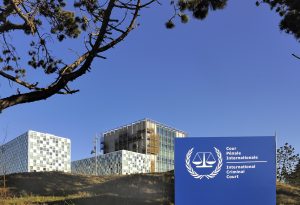Judges at the International Criminal Court (ICC) have rejected an attempt by the Philippines to block an investigation into the thousands killed during former President Rodrigo Duterte’s “war on drugs.”
In a ruling on Tuesday, judges in the appeals chamber of The Hague-based court rejected a Philippine government appeal against the Pre-Trial Chamber’s authorization to resume the investigation into the killings.
In its January ruling, the Pre-Trial Chamber granted its chief prosecutor’s request to reopen an investigation into the killings, having suspended the probe in November 2021 after the Philippines requested a deferral, arguing that it was conducting its own investigations into the “drug war” killings.
Duterte’s anti-drugs campaign, a signature policy that began the moment he was sworn into office in mid-2016, has claimed thousands of lives, by the government’s account; some human rights groups put the death toll as high as 12,000, including many children and innocent victims.
The campaign almost immediately caught the attention of ICC investigators. In late 2020, then ICC chief prosecutor Fatou Bensouda announced that a preliminary probe had found “a reasonable basis to believe that the crime against humanity of murder has been committed on the territory of the Philippines” between July 1, 2016, when Duterte came to office, and March 16, 2019, when Duterte announced that the Philippines was withdrawing from the Rome Statute that created the ICC.
The ICC investigation also covers alleged extrajudicial killings committed in Davao City in the southern Philippines from November 2011 to June 2016, when Duterte was mayor of the city.
In September 2021, judges at ICC authorized an investigation into the anti-drug campaign. The probe has since proceeded through various stages of appeal, as Manila has sought to derail and delay the investigation, including its request for a deferral in November 2021. When the Pre-Trial Chamber ruled that the investigation should proceed, claiming that it was “not satisfied that the Philippines is undertaking relevant investigations that would warrant a deferral of the investigation,” it filed the current appeal.
The substance of Manila’s argument was that the ICC judges had mistakenly found that the court has jurisdiction over the situation in the Philippines, despite Duterte’s withdrawal from the Rome Statute, and that they had not accurately assessed ongoing domestic investigations into the anti-drug campaign. Three out of five appeal judges rejected these arguments, Presiding Judge Marc Perrin de Brichambaut said yesterday.
The ruling leaves the Philippines without further avenues for appeal, opening the way finally to a thorough investigation of drug war abuses. In a statement issued following the ruling, Bryony Lau of the advocacy group Human Rights Watch described the decision as a “step toward justice for victims of extrajudicial killings.” She added, “This is also an opportunity for President Marcos to change course and break away from the culture of abuses and impunity that have long bedeviled the Philippines.”
While President Ferdinand Marcos Jr., who took office in June of last year, has admitted that “abuses” took place during the anti-drug campaign, his administration has stated that it will not cooperate with the ICC. After the Pre-Trial Chamber’s January ruling, Justice Secretary Jesus Crispin Remulla described the investigation as “insulting” and “totally unacceptable.” More recently, Remulla that the Marcos administration will not execute an arrest warrant should it be issued by the ICC.
As I noted at the time, a lot has yet to happen for Duterte and other key individuals to end up in the dock in The Hague.

































